Google just announced 10 huge updates for your Android phone
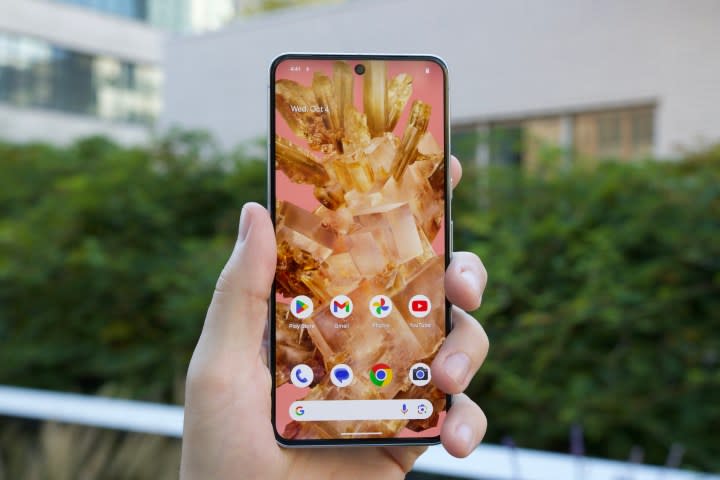
Google I/O, the annual everything-Google-software fest, has kicked off. As usual, Android takes center stage. From enhanced privacy and Google Wallet upgrades to theft detection and app safety checkups, there’s a lot to look forward to here.
From Android 15 features to more general Android updates, here’s a breakdown of all the major Android announcements from I/O 2024.
Making life easier with Google Wallet
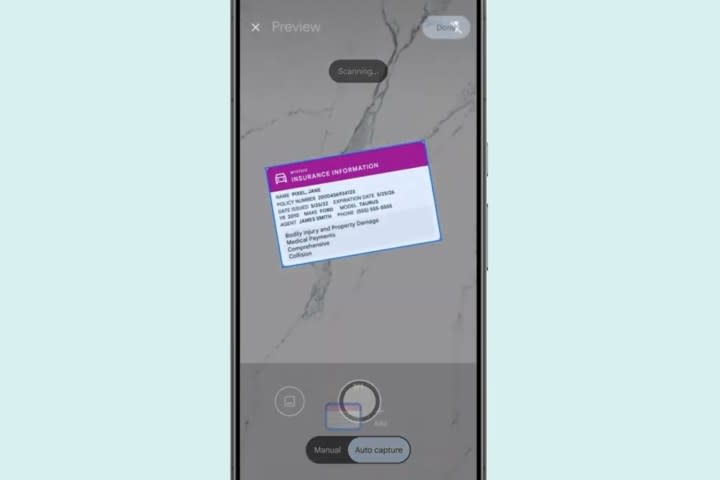
Do you have a pass that is heavy on text, a library card, an insurance slip, or a gym membership card? If you live in the U.S., simply scan it within the Google Wallet app, and it will create a digital version for easy access in the future while locking it behind a passcode or biometric firewall. Neat! This feature isn’t tied specifically to Android 15, so you won’t have to wait on that major update to use this one.
Double-checking permissions

Shady apps have been abusing their on-device permissions and privileges for years to wreak all kinds of havoc. To address the issue, the Restricted Settings system will now ask users for an extra layer of approval before they grant permissions to apps installed from the internet or any other source apart from the Google Play Store.
Anti-theft safeguards
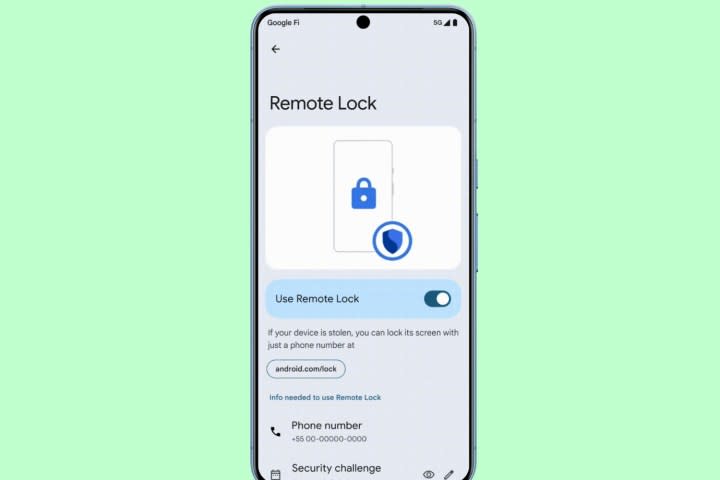
As the name suggests, this one uses AI to identify any sudden movement, such as someone running away or racing ahead on a bike with your snatched phone. In such scenarios, the phone will be automatically locked so that the thief or any other bad actor can never get access to your personal information.
If a device is stolen and the thief resets the phone, it can not be set up without the original owner’s Google account credentials, leaving it as nothing but a brick. And to ensure that critical safety features like Find My are only disabled by the legitimate owner, Android will put these controls behind a password lock.
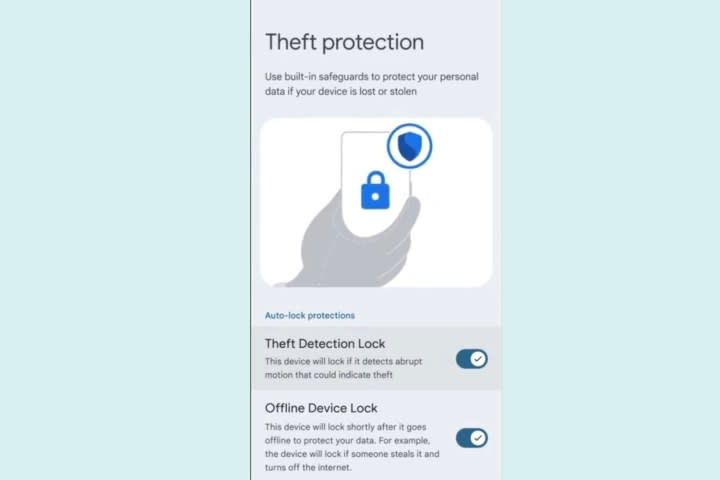
For stolen devices with theft protection enabled, Google will block sensitive processes like changing PINs, account credentials, and accessing Passkey from a new location. These guardrails will be released as part of Android 15’s public release later this year.
If your phone has been stolen and you can’t recall your Google account credentials for a remote lock or full factory reset, there is now a new option that uses the phone number and security question to let users do the same. This remote lock facility will be enabled for devices running Android 10 or a newer version later this year.
Fraud prevention
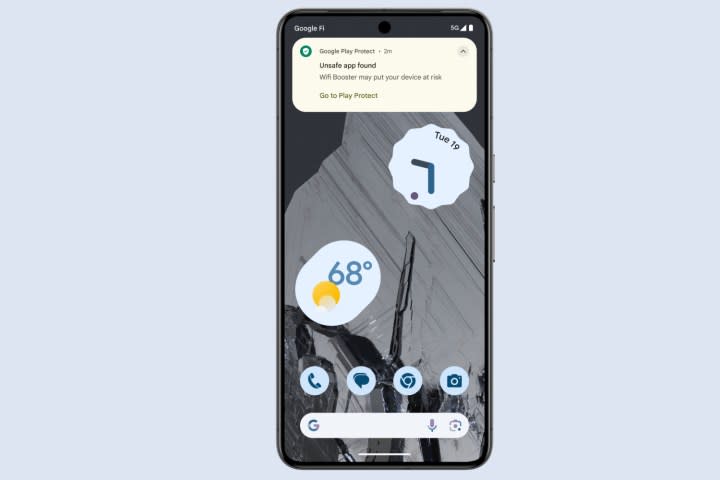
Once again, Google will rely on AI to find apps that could be engaging in suspicious behavior, such as fraud or phishing, by checking their activity and device permission in real time. If an app is detected as fraudulent following an automated check and human review, a warning will be sent to users, but no data erasure will happen.
In addition to Google’s Pixel phones, devices from OnePlus, Nothing, Oppo, Lenovo, and Honor, among others, will be enabling live threat detection later this year.
Private Space
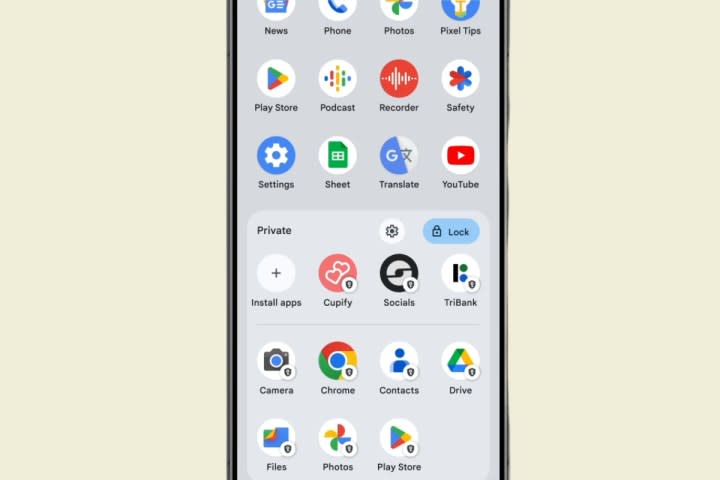
Think of this one as an invisible vault for apps that you don’t want to appear in the app library or drawer for security reasons. Locked behind a layer of password or biometric authentication, Private Space appears as a separate folder at the bottom of the App Library. Only after authentication will it let you see the sensitive apps, like those used for banking and secure communication, among others. Unlike some of the features here, you will need to wait for an Android 15 update before you can use Private Space on your phone.
Keeping one-time passwords safe
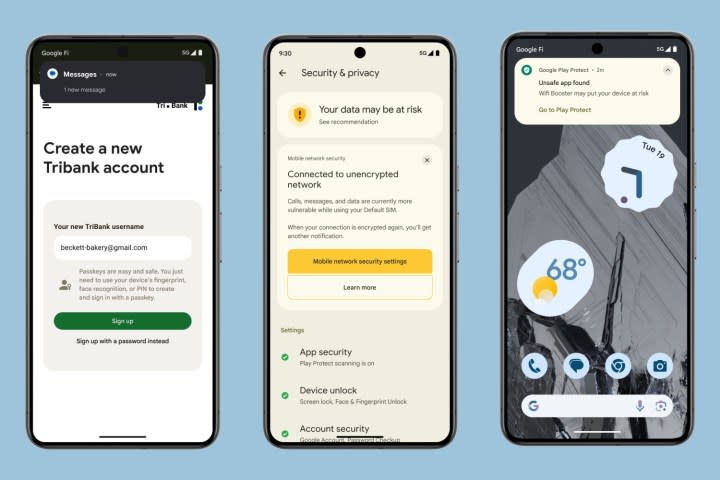
Interceptions are a common method of stealing sensitive one-time passwords (OTPs), but there are a few other ways that a bad actor can steal them. Google is closing the door on at least one of them. Android will no longer show OTPs in notification banners, keeping prying eyes from gaining access to them.
On a similar note, if you are screen sharing, notifications that contain OTPs or those from a private app will be hidden. It’s somewhat like the protected screen-sharing system in Android 15. And if you are sharing your device’s screen and need to enter log-in credentials or sensitive data like banking information, the screen will once again be hidden for that duration.
Call and network safety
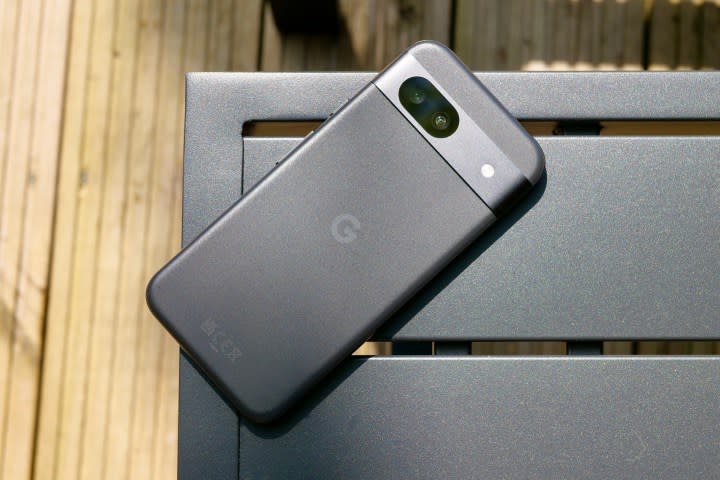
As mentioned above, network interception is a real threat vector. With that in mind, Google is introducing a new system called Cellular Cypher Transparency that will check a network’s encryption status. If it’s not encrypted, which potentially leaves call and messaging channels exposed, Google will warn users in advance.
For at-risk individuals, such as activists and journalists, Google will alert them if a surveillance tool or spyware is recording their location coordinates using the unique hardware identification number.
What else is new in Android 15?
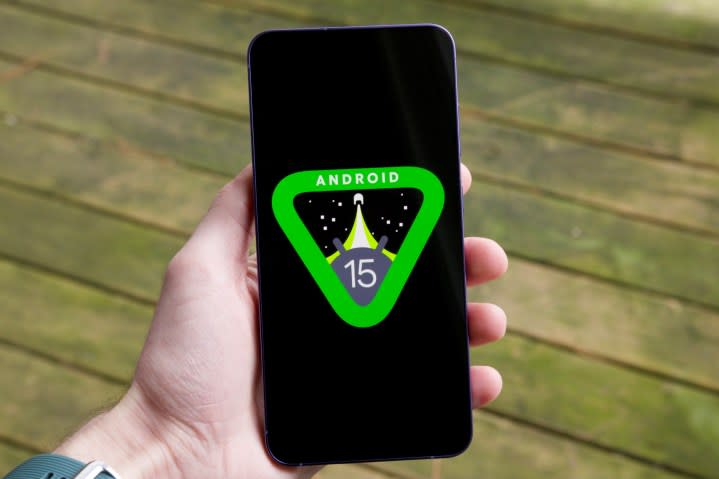
On the note of Android news, Google has today released the second beta update of Android 15 for compatible Pixel smartphones. More importantly, the company is finally opening Android 15 beta testing to a wide range of smartphones from other brands including OnePlus, Oppo, Xiaomi, Honor, and Nothing, among others.
For large-screen devices, Android 15 adds native support for pinning the taskbar at the bottom of the screen. Users can also now save their app pairs to directly launch them in a split-screen view, which is quite convenient.
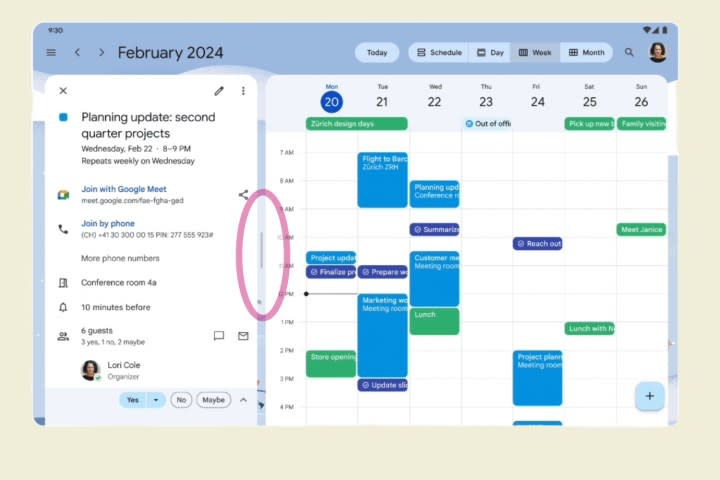
On devices like foldables and tablets, Google is also giving a push to dynamic panes for resizing an app’s UI and accordingly showing more or less details. In Android 15, when an app like Google Calendar opens with a pane view, users can actually adjust its size, just like you would adjust the size of multiple windows on a desktop screen.
Health Connect, which now serves as a centralized dashboard for all fitness and health data, is getting support for new data types, including training plans and skin temperature. Digital Trends is in attendance at Google I/O 2024, and we will be covering all the major announcements from the event, so stay tuned.

